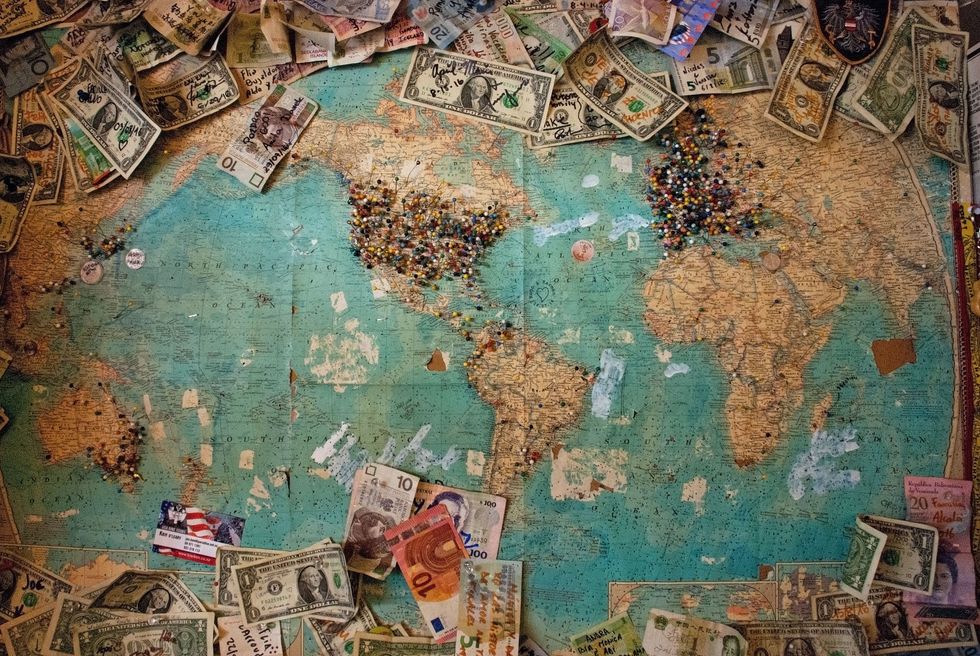I had zero expectations when I took off for Saigon (aka Ho Chi Minh City), Vietnam. I knew life would be very different for a week. I knew that I knew nothing about life in Vietnam, aside from the handful of YouTube videos I watched in a small attempt to prepare. I think I did expect accomodations to have mainly fans instead of AC and open layouts to allow for airflow.
What I did not exactly think of beforehand was the overwhelming and obvious disparities in wealth, not only amongst the people and places we saw, but between us and most anyone that wasn’t a tourist. Our professor told us we only needed about $100 for lunches. Accommodations and dinners were paid for by tuition, which did already give us a head start.
But, a quick Google search shows that someone can find a decent looking hostel with good reviews for $6/night, so it might not have been much more without tuition anyways. The equivalent of about $4 can buy you a large meal and a coffee/drink. Every souvenir I bought felt like I was wasting money, not because it was souvenir, but because I knew others around me would be using this money for things I took for granted.
Our professor sometimes made comments like “How does it feel to easily drop 200,000 VND (about $8) and know that it could be feeding a whole family?” And to be honest, I appreciated those comments. They put things in perspective and reminded me of the reality around me.
We went to restaurants every night and ate well. After a couple of days, I found myself saying things like “200,000 VND? That’s kind of expensive… Do I actually need that? I should shop around for a better price,” meanwhile, at least four other bills that size sat in my wallet. I wasn’t willing to pay what I would expect to pay back home for the same thing. And then I’d hear someone put it in perspective again; “I mean, that’s really not all that expensive when you convert it.” Right, I forgot.
This is not to say that we didn’t also see wealth. Notably, we visited a university that showed the wealth we hadn’t otherwise seen--the more upper middle class of the area. And it felt like stepping into a different country. And it's not to say there wasn't a middle class in sight--it just looked a little different than the middle class I was raised in.
Above all else, the entire trip really helped me check my privilege.
Yes, I was suddenly among the wealthy here. I was on a trip abroad for my Master’s program. I had the ability to not need to think twice about buying souvenirs and was accustomed to AC and fast/reliable wifi. I mean, we sat in balcony seats in the Saigon Opera House. I have never felt more privileged than I did sitting above others like that. But, it wasn’t just the money.
English is also one of my native languages and I was born a citizen of the United States.
This is something that privileged me above other tourists. I sat next to a Peruvian woman on one of my flights there who told me she needed to apply for a Transit Visa just to take a connection in Tokyo, despite not even leaving the airport. I panicked, thinking I needed one too.
She responded with “You’re coming from the U.S., right? You shouldn’t need one. American passports give you a lot of privileges that others don’t have.” I was taken aback. I hadn’t thought that just my passport gave me that much privilege. My fluency in an essentially international language gave me the ability to communicate better than fellow tourists without English or Vietnamese skills.
If I learned anything, it’s that I’m not sure I would have been able to prepare for that. I’m still processing the fact that I was momentarily wealthy, and the guilty appreciation that comes along with that. I cannot have been more fortunate for things I didn’t even choose.
Yes, maybe in the U.S. I am considered a minority from a lower middle class family, and maybe in the U.S. that feels like I’m struggling a bit, but that still meant being temporarily rich in Saigon. I don’t want to take that for granted again.







































